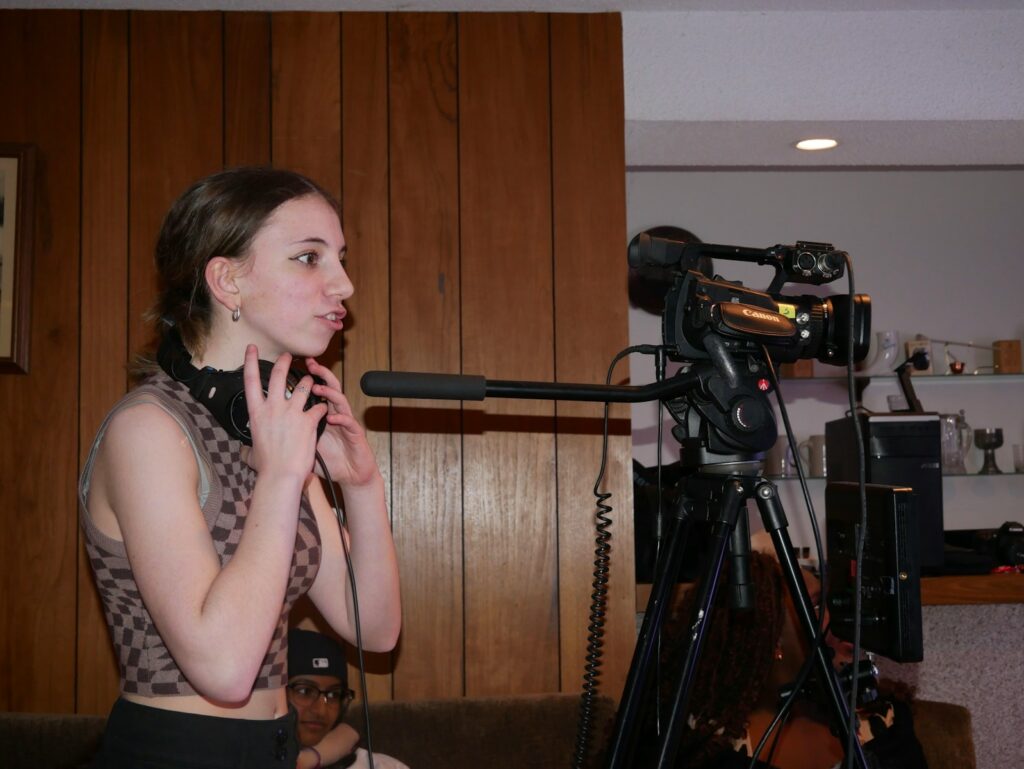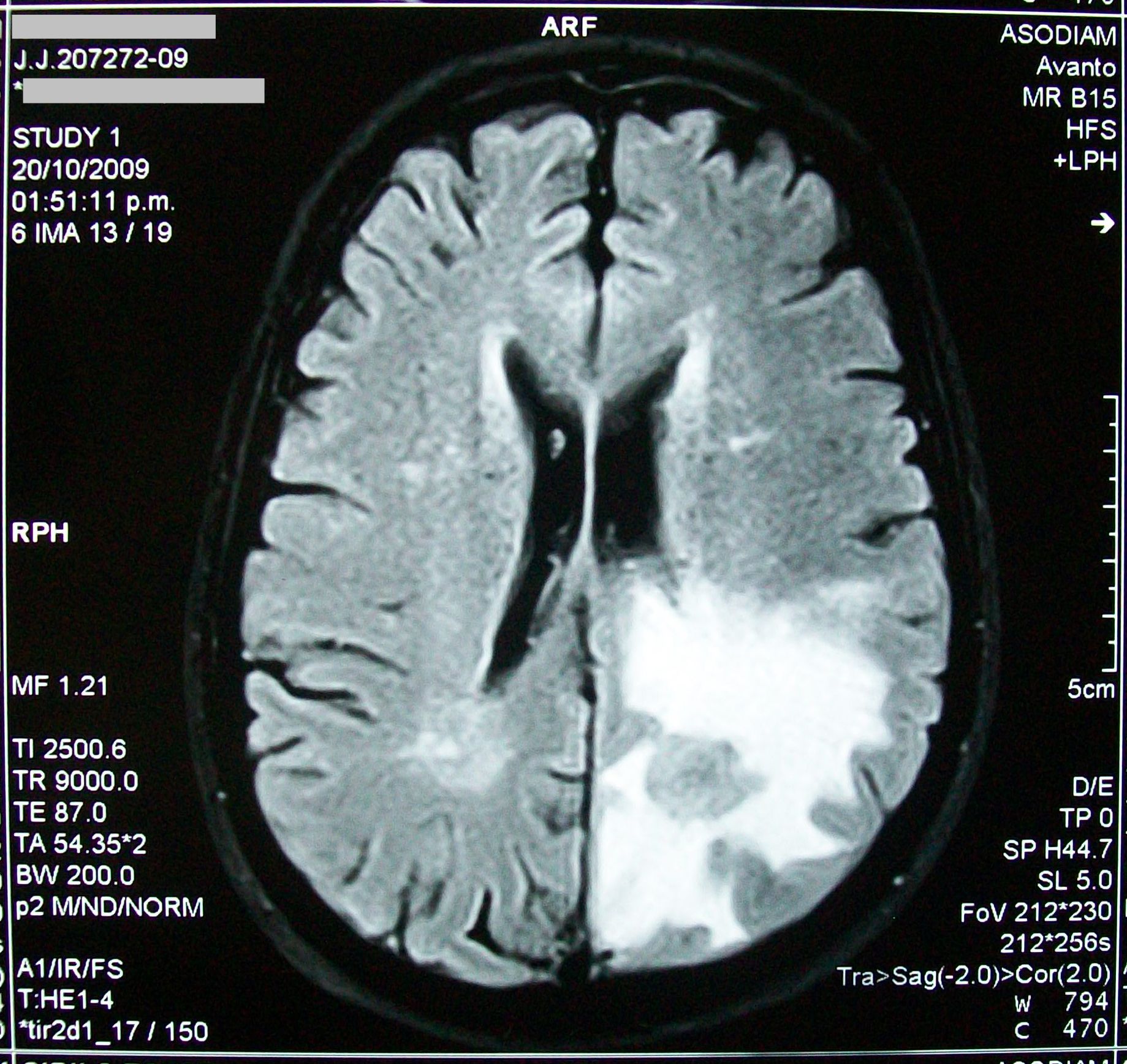Imagine waking up one ordinary morning, feeling perfectly normal, only to discover that the very sound of your voice has been utterly transformed. It’s a scenario so surreal, so profoundly disorienting, that it sounds like the stuff of science fiction. Yet, for a vanishingly small number of individuals across the globe, this bewildering shift in identity becomes their baffling new reality. This is the world of Foreign Accent Syndrome (FAS), a condition so rare and perplexing that it challenges our deepest assumptions about language, brain, and self. And it’s a world that the renowned investigative journalism of 60 Minutes has bravely ventured into, bringing these extraordinary stories to light.
Indeed, the concept is so bizarre, one might be forgiven for questioning its very existence. However, as the powerful hour of 60 Minutes Australia revealed, Foreign Accent Syndrome is not only real, but it profoundly reshapes the lives of those it touches. It’s a journey into the uncharted territories of the human brain, where a sudden shift in speech patterns can leave an individual sounding as though they’ve lived a lifetime in a country they’ve never once visited. The personal narratives unearthed by the program are nothing short of captivating, painting a vivid picture of confusion, frustration, and an enduring quest for understanding.
Consider the plight of Cindy Hastings from Queensland, Australia. Her story begins with the familiar torment of a horrendous migraine headache. But what followed was anything but ordinary: the migraine escalated into a seizure, leading to a prescription for medication. Then, the truly unbelievable happened. She woke up the following morning, and the familiar cadence of her Australian voice was gone, replaced by an Eastern European accent she simply could not shed. For Cindy, the struggle extends beyond the mere sound of her words; she contends with the constant prejudice and disbelief from a world unable to grasp her inexplicable affliction.
Her experience echoes the profound isolation felt by Sarah Colwill from Plymouth, England. An accomplished I.T. specialist, Sarah also endured a debilitating migraine headache before waking to a thick Chinese accent, a dialect she had never spoken nor studied. The impact on her life was immediate and devastating. “I think particularly in the early days they didn’t like to see what I’d become,” she candidly shared, reflecting on the friends she lost, perhaps due to the upsetting nature of her transformation. Her journey has been an arduous one, spanning seven years, yet the challenge persists: “People still think I’m not British,” she told the Daily Mail, a testament to the enduring struggle of living with a voice that misrepresents her very identity.
Adding another layer to this extraordinary tapestry of experiences is Kay Russell from Gloucestershire, UK. For Kay, too, a severe migraine proved to be the precursor to a permanent, unshakeable French accent. Her words convey the utter helplessness felt by those grappling with FAS: “If you’ve been through this or go through this you know jolly well there’s no way of fighting it, it’s impossible,” she explained. These accounts, unsettling in their uniformity of sudden onset and profound alteration, underscore the mystery at the heart of Foreign Accent Syndrome – a condition that takes hold without warning and often refuses to relinquish its grip.
What makes these narratives particularly compelling for viewers at home is how profoundly the condition impacts a person’s sense of self. Our voice is an intrinsic part of who we are, a sonic signature that ties us to our origins, our culture, and our personal history. To have that stripped away, replaced by an unfamiliar cadence, is to endure a deep personal crisis. It’s not just about sounding different; it’s about feeling fundamentally altered, as if a part of one’s core identity has been mysteriously erased.

The 60 Minutes Australia program took this investigation further, introducing us to two Australian women whose baffling experiences with FAS resonated deeply with viewers. Angie Yen, a 28-year-old from Brisbane, found her life irrevocably changed after undergoing tonsil surgery in April. Eight days post-operation, a seemingly innocuous act—singing to herself in the shower—revealed a startling truth. “All these words popping out of my mouth were sounds that I did not recognize,” she recounted, her disbelief palpable. A frantic call to a friend confirmed her fears: “Why do you sound Irish?” her friend asked, cementing Angie’s abrupt introduction to FAS.
Angie’s confusion was compounded by her complete lack of connection to Irish culture. “I know little to nothing about the Irish culture,” she shared, emphasizing her deep Australian roots. “I’m still as Aussie as they come, but I just sound very different.” This immediate sense of disconnect plunged her into what she describes as a “massive identity crisis.” She felt as though she had lost “any Aussie representation of me anymore,” a poignant reflection on how deeply interwoven accent is with personal identity.
In the initial weeks following the change, Angie described a period of immense difficulty. “There were many days where there were tears, there was anger, and there was frustration,” she recalled. Simple daily interactions became challenging. From cab drivers to new patients in her dentistry practice, people constantly asked her to repeat herself, struggling to understand her new accent. “I actually stick out quite a bit,” she observed, highlighting the constant, unwelcome attention her voice now drew.

Compounding the emotional toll was the widespread skepticism she faced. Desperate to understand her affliction and reach out for support, Angie turned to social media, sharing her story on TikTok. This brave step, however, was met with a wave of disbelievers and trolls convinced she was faking her condition. The ridicule stung deeply. “I’m sick of being taken as a joke. It’s a very serious thing,” she asserted, a plea for validation that many FAS sufferers understand intimately. She directly confronted her critics, stating, “Unfortunately it’s not fake,” and adding, “I bloody damn hope my Aussie accent is still coming through,” a heartbreaking glimpse into her yearning for her original voice.
Her experience encapsulates the profound sense of alienation that can accompany FAS. “You don’t understand how much your voice and your accent represent you,” Angie explained, articulating a truth often taken for granted by those whose voices remain unchanged. The constant questioning, the need to explain, the feeling of being an outsider in her own country, all contributed to the immense psychological burden. I knew that I was the same person inside, but because I found it so different, I’m just like, ‘Well, do I adopt the new Irish culture?’” This internal struggle highlights the deep connection between one’s voice and one’s cultural belonging.
Another poignant case presented by 60 Minutes Australia was that of Kate Baggs, a 30-year-old from Melbourne. Kate’s journey with FAS began in 2019 after she suffered a hemiplegic migraine, which resulted in temporary paralysis. As she was recovering, her voice, too, underwent a dramatic shift, and she gained an Irish accent. “In the middle of a sentence, my accent just shifted,” Kate recounted, describing it as “the strangest feeling.” This wasn’t even her first encounter with a transient accent change; in 2015, after a similar extreme migraine episode, her accent had temporarily shifted to Canadian before mercifully returning to her native Australian.
Just like Angie Yen, Kate Baggs has spent her entire life in Australia, never having visited Canada or Ireland. Their stories are a powerful testament to the fact that these accent changes are not a result of mimicry or exposure, but rather an internal, involuntary transformation. The sheer disbelief and difficulty in comprehending such an event only amplify the isolation experienced by individuals like Angie and Kate.

For Angie, the surreal nature of her condition persisted for months. It’s been very surreal, like it’s a really wild trip,” she confessed, even more than 60 days after her accent first appeared. The hope that it might simply be a dream lingered: “Most days I’m like, ‘Oh no, this can’t be. I’m gonna wake up. And it’s all gonna be a dream.’” These deeply personal accounts underscore the profound human struggle that lies at the heart of Foreign Accent Syndrome, a condition that forces individuals to navigate a world that struggles to understand them, all while grappling with a fundamental shift in their own identity. The narratives presented by 60 Minutes serve as a vital window into this bewildering, yet undeniably real, human experience.
The bewildering personal accounts of Foreign Accent Syndrome (FAS) naturally lead us to a deeper, more profound question: how can such a phenomenon possibly occur? What hidden mechanisms within the intricate landscape of the human brain orchestrate such a dramatic and disorienting transformation? The investigative lens of 60 Minutes, in its earnest quest for understanding, moves beyond the immediate shock of these altered voices to explore the nascent scientific explanations and the enduring, multifaceted impact on those living with this rare condition.

Indeed, for medical professionals, FAS presents a complex puzzle, one that challenges established understandings of neurology and linguistics. Dr. Nick Miller, a researcher who has dedicated his studies to this enigmatic syndrome, offers a pivotal insight: the patients, he posits, are not genuinely speaking in a foreign accent. Instead, it is the perception of their words by others that shifts. This sudden alteration, he explains, is in fact a distinct speech impediment, a neurological consequence stemming from an underlying condition that affects the brain. The journey of speech, from its origin in the brain to its articulation through the mouth, becomes subtly distorted, resulting in sounds that listeners interpret as a foreign dialect.
Supporting this medical perspective, speech pathologist Professor Kirrie Ballard emphatically confirms the legitimacy of the disorder. She states, without equivocation, that “Foreign Accent Syndrome is a legitimate disorder.” Professor Ballard clarifies that FAS is accurately described as “a person’s speech changing so that it sounds as though they’re speaking in a different accent than their habitual accent.” This crucial validation brings immense relief to sufferers, who often grapple with disbelief and skepticism. Professor Ballard further illuminates the possible triggers, noting that FAS can be prompted by “psychological or neurological damage,” an insight she powerfully conveys by “likening the brain to a computer,” a complex system where even a minor disruption can yield unexpected outputs.
While the scientific community steadily works towards unraveling its mysteries, FAS remains remarkably rare. Since its initial description in 1907, a mere “about 100 reported” cases have emerged globally, making it one of the most elusive speech disorders known. This extreme rarity, coupled with its perplexing presentation, often leaves local medical professionals unprepared to offer definitive diagnoses or effective treatments. Angie Yen’s desperate search for answers following her accent change vividly illustrates this challenge; she recounted how “local neurologists whom she reached out to were all unable to help her,” underscoring the formidable hurdles faced by those seeking medical validation and assistance.

However, the tireless pursuit of answers is beginning to yield promising insights, particularly through advanced neuroimaging techniques. 60 Minutes provided a compelling glimpse into this frontier by documenting Angie Yen’s functional MRI brain scan. The results were nothing short of revelatory: while much of her brain appeared normal, the scan revealed “an abnormal amount of activity in the language center of her brain.” The neuroscientist examining her case described it as “the most extreme language network [I’ve] ever seen.” This tangible evidence provided Angie with an overwhelming sense of relief. I cried because I felt so relieved that I finally had the answers that I’m okay, I’m healthy,” she shared, adding, “And I now have proof that I’m not faking it. So people… can start taking [me] seriously.” This emotional breakthrough underscores the critical importance of scientific validation in the deeply personal battle against FAS.
Living with FAS is an ongoing journey fraught with profound psychological and emotional challenges. The sudden loss of one’s native accent, an intrinsic part of identity, precipitates what Angie Yen described as a “massive identity crisis.” The initial weeks post-onset are often characterized by “tears, there was anger, there’s frustration.” Simple daily interactions transform into arduous tasks, as people constantly request repetition, struggling to comprehend the unfamiliar cadence. Angie candidly observed, “I actually stick out quite a bit,” articulating the persistent, unwelcome attention her voice now commands. The emotional burden is immense, as sufferers grapple with feeling fundamentally altered, as if a core part of themselves has been mysteriously erased.
Compounding this internal struggle are the pervasive social implications. Prejudice and disbelief are daily realities for many with FAS. Cindy Hastings, for instance, “contends with the constant prejudice and disbelief from a world unable to grasp her inexplicable affliction.” Similarly, Angie Yen’s brave decision to share her story on TikTok, seeking understanding and support, was met with a harsh wave of disbelievers and internet trolls convinced she was feigning her condition. “I’m sick of being taken as a joke. It’s a very serious thing,” Angie asserted, her plea for validation echoing the sentiments of many FAS sufferers. She directly confronted her critics, stating, “Unfortunately it’s not fake,” a heartbreaking testament to her enduring yearning for her original voice.
The sense of alienation is palpable for those whose voices misrepresent their very identity. Sarah Colwill shared, “I think particularly in the early days they didn’t like to see what I’d become,” reflecting on the friends she lost, perhaps due to the upsetting nature of her transformation. Angie Yen articulated a profound truth often taken for granted: “You don’t understand how much your voice and your accent represent you.” The continuous questioning, the obligation to explain, and the feeling of being an outsider in her own country all contribute to an immense psychological toll. This internal struggle extends to cultural belonging; Angie mused, “I knew that I was the same person inside, but because I found it so different, I’m just like, ‘Well, do I adopt the new Irish culture?’” The voice, it seems, is inextricably linked to one’s sense of place in the world.

Despite the formidable challenges, individuals like Angie Yen have bravely sought avenues for coping and support. Her decision to share her experience on TikTok, initially fraught with ridicule, ultimately connected her with a wider community. It has gotten her the medical help she needed, raised awareness about the rare condition, and introduced her to a community of people who also grapple with FAS.” She found solace in a “Facebook group of about 100 members where people discuss FAS.” This communal support is vital, as Angie acknowledged, “It’s a very isolating syndrome. Just having… someone else to talk to who was in the same boat—it definitely makes things a lot easier to navigate in life.” Finding solidarity transforms a solitary struggle into a shared journey of resilience.
In the ongoing quest to reclaim their voices, some individuals with FAS explore therapeutic approaches like speech therapy. However, the path is often challenging and draining. Angie Yen found her brief experience with the therapy process to be “really draining,” noting that it felt less like a genuine reversal and more like “learning to mimic an Australian one.” She candidly admitted, “It’s not a complete cure.” This reveals the complex neurological underpinnings of FAS; it’s not simply a matter of retraining muscles, but rather addressing deeper alterations in how the brain processes and produces speech. Angie, in her ongoing efforts, even listens to the radio, trying to “pick up some Aussie words and pronunciation,” a testament to her perseverance.
The unpredictable nature of FAS adds yet another layer of complexity to these individuals’ lives. Angie Yen reported that her Taiwanese Mandarin accent, which had shifted to sound more mainland Chinese, mysteriously reverted to her original twang on its own. Her English accent also fluctuates, sometimes sounding “more British on some days and more American on others.” Intriguingly, on some days, she even catches herself with “an accent that sounds slightly more Australian.” This variability, however, is often tied to her emotional state; she noted, “But when I’m really stressed or tired, I definitely sound more Irish.” These fluctuations highlight the dynamic and often elusive nature of the brain’s control over speech.

Looking ahead, the personal journeys of those with FAS intertwine with the broader scientific mission to decode the brain’s astonishing complexity. Angie Yen, embracing her new reality, has even made it a “personal goal to visit Ireland after the pandemic, so she can accurately place her new accent and just enjoy being around people who sound like her.” This desire to find a place of belonging, to connect with those who share her linguistic reality, speaks volumes about the human need for connection and acceptance. “Humans, we’re tribal animals; we just want to feel like we want to belong,” she insightfully shared.
Foreign Accent Syndrome, as illuminated by 60 Minutes, stands as a powerful testament to the brain’s intricate and often unfathomable workings. It compels us to reconsider our assumptions about language, identity, and the very essence of self. The ongoing scientific pursuit, fueled by the unwavering courage of individuals like Angie Yen and Kate Baggs, promises not only a deeper understanding of this rare condition but also invaluable insights into the broader architecture of the human mind. Their stories, challenging yet inspiring, serve as a vital reminder of the extraordinary resilience of the human spirit in the face of life’s most bewildering transformations and the unyielding human desire to truly understand the world within and around us.





